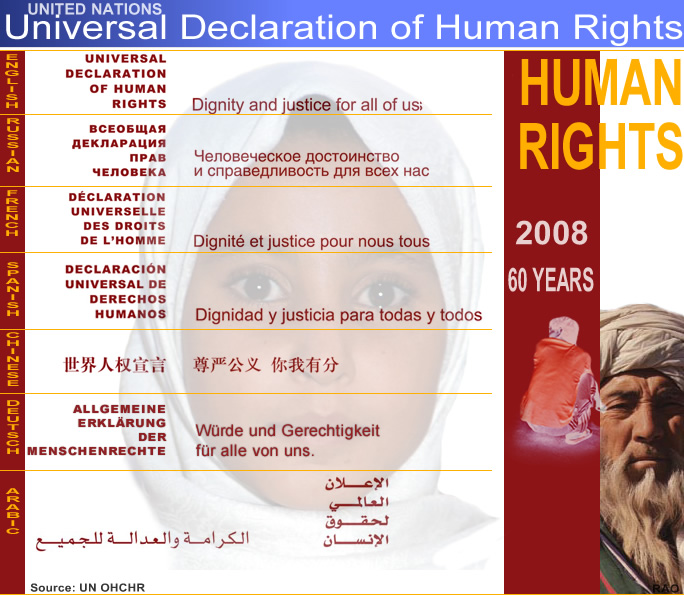| On
10 December 2007, Human Rights Day, the Secretary-General launched a year-long
campaign in which all parts of the United Nations family take part in the
lead up to the 60th birthday of the Universal Declaration of Human Rights
(UDHR) on Human Rights Day 2008. The UDHR continues to hold the world record
as the most translated document. With more than 360 language versions to
help them, UN organizations around the globe will use the year to focus
on helping people everywhere to learn about their human rights. The UDHR
was the first international recognition that all human beings have fundamental
rights and freedoms and it continues to be a living and relevant document
today.
From
the six UN official languages - Arabic, Chinese, English, French, Russian,
and Spanish- spoken by billions of people, to Pipil, spoken by some 50
people in El Salvador and Honduras, the UDHR holds the Guinness World Record
for the most translated document in the world. During the World Decade
for Human Rights Education (1995-2004), a project to have the Declaration
translated into as many languages and dialects as possible, was developed
by several UN agencies and departments, including the Office of the High
Commissioner for Human Rights (OHCHR), as well as governments, academia
and international, regional and grass-roots civil society organizations.
OHCHR
received over 360 translations, including one by Ali K. Phiri of Malawi,
a teacher with extensive experience in human rights education in prisons,
schools and remote communities, who translated the UDHR into Yao, the third
most spoken language in the country. Phiri distributed 1,500 booklets containing
the UDHR and 500 copies of the Bill of Rights in various villages. Discussions
were held with villagers who also learnt about ways to secure their own
rights.
The
theme of the campaign, "Dignity and justice for all of us," reinforces
the vision of the Declaration as a commitment to universal dignity and
justice and not something that should be viewed as a luxury or a wish-list.
In addition to the theme, a logo symbolizing theses principles is available
to celebrate this anniversary during this one year period. |
 |




